by The Curious Scribbler

The old carriage drive on the Gorge walk at Hafod
The Second of January 2025 served up a perfectly clear and ferociously cold day at Hafod. The rivers were gushing with clear water draining from the sodden uplands, and the overnight rain remained as frozen ice droplets on the fine twigs of the birch trees. Out of direct sunlight they remained stuck like jewels, while where to sun penetrated they gradually melted and dripped to the forest floor. It was here that I was privileged to find that rarest of phenomena Hair Ice.
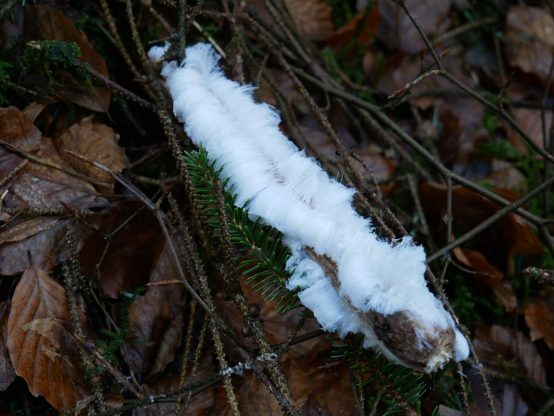
Hair ice sprouting from a dead bough on the forest floor at Hafod
There was no snow on the ground, but here and there among the brown leaf mould and green moss one could see bright strands of white. At a distance they looked more like a sparing litter of elongated white scraps of Kleenex discarded by a careless hiker. On closer inspection these proved to be a thick growth of delicate hairs of ice, sprouting from pieces of thin dead branches on the forest floor. The ice forces outward from the bare dead wood. The twigs thus decorated are never conifer twigs but always fragments of oak, birch and beech.
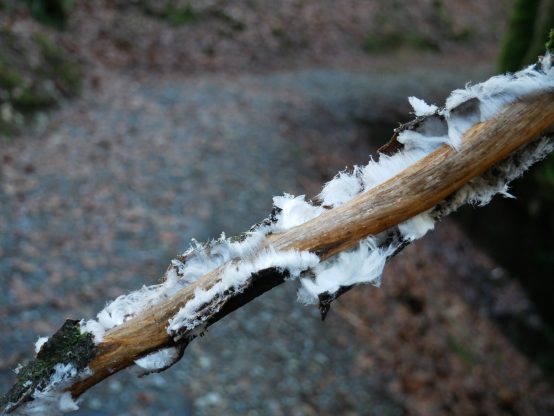
Hair ice at least a centimeter long prizing the bark off a dead branch
Very specific conditions of moisture and temperature are necessary to this occurrence, and the precise explanation has only be elucidated by researchers in the last ten years. A necessary ingredient for hair ice formation is that the dead deciduous twig should be very damp and also infected with a fungus Exidiopsis effusa. Only in the presence of the mycelium of this species of fungus does hair ice form. Each strand, about 0.2 of a mm in diameter freezes as it is extruded from the damp wood, and the lignin and tannin freed by the action of the fungus are necessary to the formation of hair ice. The ice-like fur more than an inch long had grown during cold humid night exerting force sufficient to lift away chunks of bark from the substrate.
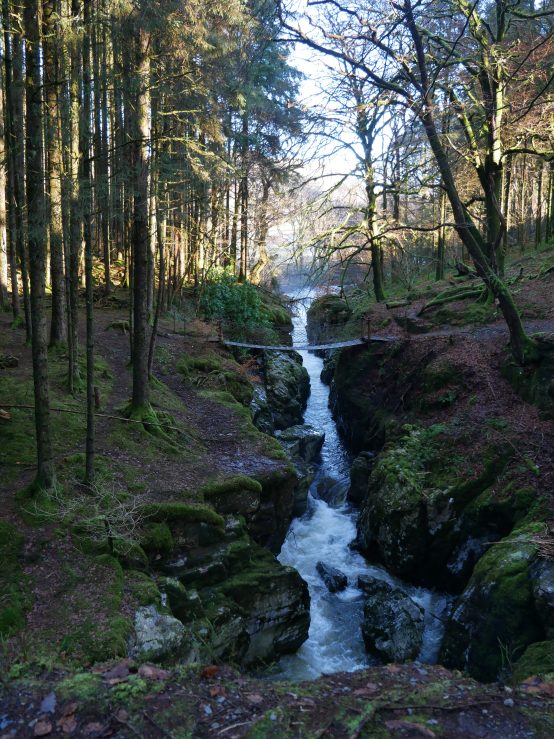
The Hafod Gorge viewed from the Gothic Arcade
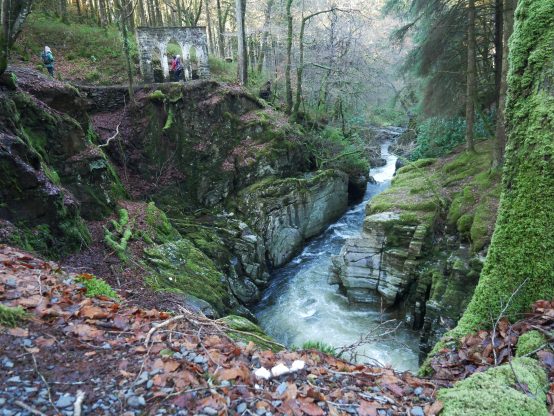
The Hafod Gorge below the Gothic Arcade
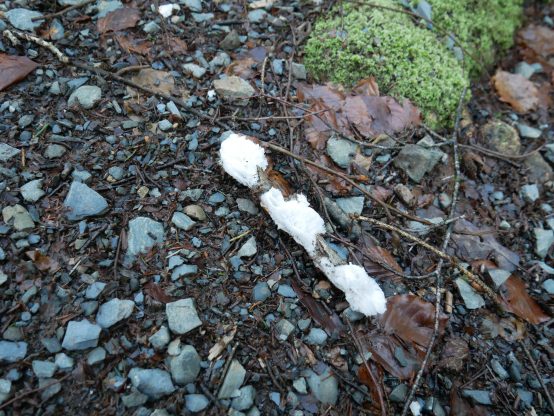
Hair ice covering an rotten twig on the path
It is a winter treat to find Hair Ice, and pleasing to be able to understand the conditions which produce it. Another curious piece of winter magic is Star Jelly, which people find and marvel at every winter, strange blobs of clear jelly often lodged as if it had fallen among coarse meadow grass.
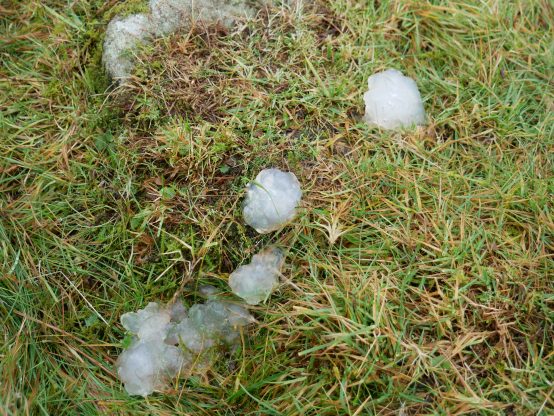
Star Jelly – is it Crystal Brain Fungus or regurgitated frog spawn?
Here science has yet to provide a convincing explanation. Some like to think it is a fungus, others that it is the regurgitated jelly of frog spawn sicked up by herons or crows which had eaten a frog. But the scientists have failed to find frog DNA, or even identifiable cells within the jelly. An unsolved mystery as yet..
